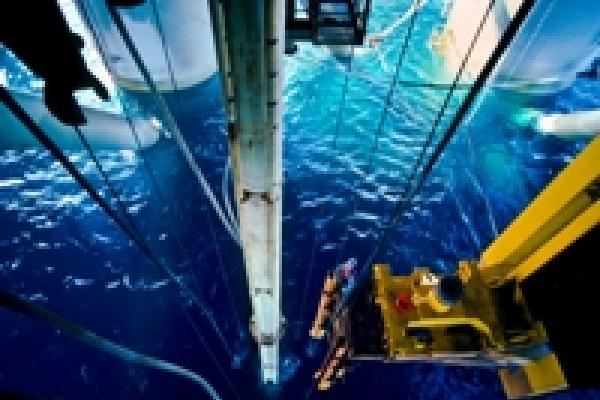
Steamship Mutual
Published: February 01, 2010

Contracts between companies providing services to the owners of offshore platforms in the Gulf of Mexico will often contain indemnity provisions designed to create reciprocal defence and indemnity agreements between and among the various contractors.
In Grand Isle Shipyards v Seacor Marine the U.S District Court for the Eastern District of Louisiana ruled that as the contracts between the parties called for work to be carried out on an offshore platform, the contracts focussed on an Outer Continental Shelf Lands Act (“OCSLA”) situs (location) so that the adjacent state’s law applied as surrogate federal law. The result was that the indemnity provisions within the contracts were barred by the effect of the Louisiana Oilfield Anti-Indemnity Act (“LOIA”).
On appeal, U.S. Court of Appeals for the Fifth Circuit reversed this decision, holding that because the incident which gave rise to the dispute occurred on a vessel that was not adjacent to an OCSLA situs, General Maritime Law rather than Louisiana state law applied.
Grand Isle successfully moved for are-consideration and the Fifth Circuit sitting en banc issued a new standard for determining when an indemnity clause in an offshore energy contract is triggered, ruling that the courts should look to the “focus of the contract” or where “the majority of the work” would occur, rather than the location of the particular occurence which led to the claim.
Background
Seacor had entered into a Vessel Charter Contract with BP and Grand Isle had entered into a Master Maintenance and Construction Services Contract with BP. Both contracts contained indemnity provisions. Such provisions are commonplace in offshore contracts and are designed to create reciprocal defence and indemnity agreements between the various contractors. The contractor is usually required to indemnify the operator against any claims arising out of the services provided by the contractor.
Denny Neil, an employee of Grand Isle suffered an injury while travelling aboard a crew boat operated by Seacor Marine. Seacor provided transport from shore to offshore platforms and between the platforms in the Gulf of Mexico. Neil was injured while being transported from the platform on which he was working to the platform on which he resided. He was off duty at the time of the incident. Neil filed suit agianst Seacor in the U.S District Court for the Southern District of Texas – Galveston Division. The claim was filed pursuant to the Longshore and Harbour Wokers Compensation Act (LHWCA) and alleged negligence on the vessel interests’ part. As part of their defence of the personal injury litigation, Seacor tendered a claim for defence and indemnity to Grand Isle and a claim for insurance coverage from Grand Isle’s insurer, Gray Insurance.
Grand Isle and Gray Insurance responded to Seacor’s claim by filing declaratory judgement actions in the U.S. District Court for the Eastern District of Louisiana seeking a declaration that Seacor was not entitled to an indemnity because of the application of the Lousiana Oilfield Anti-Indemnity Act (LOIA). The Louisiana District Court found that the BP contracts focused on an Outer Continental Shelf Lands Act (OCSLA) situs because they called for work to be undertaken on BP’s platform.
OCSLA contains a jurisdictional choice of law provision which serves to define which law will govern claims arising on platforms and other situs on the Outer Continental Shelf. Either general maritime law will apply or the law of the state adjacent to the situs as surrogate federal law. The Act extends the rights of longshore and harbour workers to those individuals working aboard platforms fixed to the outer continental shelf. Noting that OCSLA adopts the adjacent’s state’s law and that LOIA prohibits indemnity provisions, the District Court entered summary judgement in Grand Isle’s favour.
Fifth Circuit Decision
The decision was appealed and the Fifth Circuit reversed, ruling that the vessel on which the incident occurred was not adjacent to an OCSLA situs, state law did not apply and, in turn, the indemnity agreement was enforceable.
In determining whether the OCSLA’s choice of law provision is triggered in a tort case, the court must consider a three-part test pursuant to that which was announced in Rodrigue v Aetna Casualty & Surety Co and modified by the Fifth Circuit in Union Texas Petroleum Corp v PLT Engineering, Inc (5th Cir.1990). The choice of law provision will be activiated if:
- The controversy arises on a situs covered by OCSLA (all submerged lands lying seaward and outside of the area of lands beneath navigable waters as defined in Section 2 of the Submerged Lands Act and artificial structures permanently or temporarily attached thereto).
- Federal maritime law must not apply of its own force
- The state law must not be inconsistent with federal law.
In reviewing and rejecting the original appeal panel’s decision, the Fifth Circuit sitting en banc (full court – less one in this instance) decided that the courts should examine the “focus of the contract” or “the majority of work of the contract” when considering the choice of law principles for contract interpretation. The decision therefore rewrote the first prong of PLT Engineering. Rather than considering where an incident happened, the court will now be directed to consider where the “majority of the work” of the contract was intended to be performed. The nature of contracts such as those entered into by Seacor in the subject case is such that the “majority of the work” will likely be intended to take place on offshore platforms fixed on the outer continental shelf.
The court also directed that the “focus of the contract” should be considered by the court by reviewing individual work orders rather than the MSA (Master Service Agreement). Again, the work order prepared in an instance such as that which was encountered in the Denny Neil casualty will likely involve an order to transport a worker from ‘A’ to ‘B’ – ‘B’ will invariably be a platform which will meet the criteria of an OCSLA situs test and which in turn will activate the choice of law provision. If the law of the adjacent state is for example, that of Louisiana, then LOIA will prohibit any contractual indemnity provision and the indemnity language will be worthless. The focus for situs purposes has become the contractual claim rather than the tort claim.
Summary
While the Fifth Circuit’s decision has clarified and simplified the process of determining the choice of law, the impact upon vessel operators is one that is considerably less straightforward. The decision in Grand Isle will place a heavy burden on crew boat operators who will no longer be able to rely on a common practice of simply agreeing upon an MSA which contains accepted and ubiquitous indemnity language.
If a casualty involves an individual who was going to or was involved in work on an offshore platform then the OCSLA choice of law provision will inevitably be triggered. Owners will no longer be able to rely on the assumption that for example, a personal injury lawsuit brought against them would be governed by federal maritime law. Instead, claims will be governed by the law of the adjacent state and remedies that may not have been otherwise available may be pursued.
Seacor had no contractual relationship with Grand Isle in the underlying case; their contract was with BP and they were forced to rely upon this contract to attempt to obtain imdenification and insurance coverage. If the contract containing the indemnity clause constitutes a maritime contract, maritime law will however apply of its own force and the second prong of the PLT test will not be met. The law of the adjacent state will not become surrogate federal law. This being the case, the indemnity provision should be secure. In the writer’s opinion, had Seacor’s contract been in place with Grand Isle, the focus of the contract would have been maritime transportation and under federal maritme law, Grand Isle would have been required to provide Seacor with defence and indemnity.


